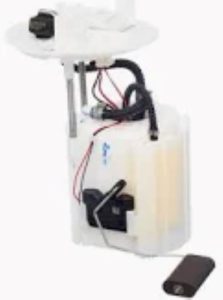Poor quality or bad maintenance of the fuel overheating, and other conditions result in early failure of fuel pumps. Low-quality or adulterated fuel may contain debris, rust particles, or water that blocks filters and interferes with smooth fuel flow. Clogged fuel filters force the fuel pump to work harder; thus, increasing wear, it could decrease service life by as much as 30% in pumps. Indirectly, the intake of contaminated fuel is estimated to cause about 15% of all fuel pump failures, thus quality fuel should be used and the filters changed on routine basis.
Running on low fuel also puts extra stress on the pump. Fuel pumps use some of the gasoline in the tank to cool themselves, and if fuel levels get too low-think less than a quarter tank-the pump can overheat. If constantly operated under these low-fuel conditions, the consistent overheating and premature wear of the motor will occur over time. On that note, car experts recommend that having at least a quarter of fuel in the fuel tank can increase the life of your pump by roughly 20%, hence minimizing occurrences of problems caused by overheating.
Other common causes of early fuel pump failure include electrical problems. This includes faulty wiring or loose connections, which interfere with the power supply, causing the pump to surge on and off irregularly, or pull more current than usual. Surge in excessive flow of current results in overheating or even motor burnout. In fact, data on repairs indicates that about 10% of fuel pump failures result from electrical problems. Thus, for practical purposes, pumps have a power connection that is stable. It requires proper grounding and secure wiring for correct functionality of the pump.

The problem with stock fuel pumps is that they can fail a lot quicker in high-performance or modified engines. For example, turbocharged engines need higher pressure and flow rates from the pump, running well over 100 psi versus a typical engine's pressures of 30 to 60 psi. Installing a high-performance pump for the engine specifications will prevent this mismatch and ensure the pump handles the increased demands without premature wear.
Poor maintenance accelerates wear on fuel pumps. Changing the fuel filter every 20,000 to 30,000 miles is required because a blocked filter forces the pump harder. Failure to replace the filter results in problems in fuel delivery and general running, with eventual premature failure. Mechanics emphasize regular maintenance, emphasizing that "Routine maintenance saves on costly repairs," since fuel pumps themselves can cost $700 or more when poor maintenance causes failure.
Poor fuel pump life reduces vehicle performance and increases repair costs. Better preventive practices will be good quality fuel, try to avoid running the tank of fuel unusually low, and regularly replace filters for a longer life of the fuel pump and a well-performing engine. For more detailed information on fuel pump care and various replacement options, check out Fuel Pump.